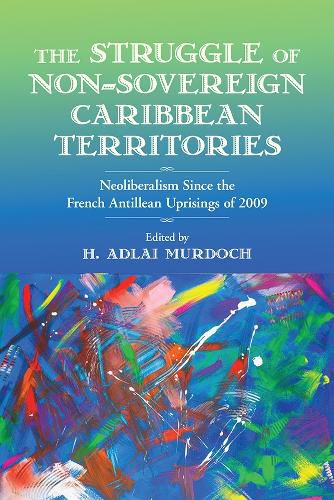Readings Newsletter
Become a Readings Member to make your shopping experience even easier.
Sign in or sign up for free!
You’re not far away from qualifying for FREE standard shipping within Australia
You’ve qualified for FREE standard shipping within Australia
The cart is loading…






The Struggle of Non-Sovereign Caribbean Territories is an essay collection made up of two sections; in the first, a group of Anglophone and francophone scholars examines the roots, effects and implications of the major social upheaval that shook Guadeloupe, Martinique, French Guiana, and REunion in February and March of 2009. They clearly demonstrate the critical role played by community activism, art and media to combat politico-economic policies that generate (un)employment, labor exploitation, and unattended health risks, all made secondary to the supremacy of profit. In the second section, additional scholars provide in-depth analyses of the ways in which an insistence on capital accumulation and centralization instantiated broad hierarchies of market-driven profit, capital accumulation, and economic exploitation upon a range of populations and territories in the wider non-sovereign and nominally sovereign Caribbean from Haiti to the Dutch Antilles to Puerto Rico, reinforcing the racialized patterns of socioeconomic exclusion and privatization long imposed by France on its former colonial territories.
$9.00 standard shipping within Australia
FREE standard shipping within Australia for orders over $100.00
Express & International shipping calculated at checkout
The Struggle of Non-Sovereign Caribbean Territories is an essay collection made up of two sections; in the first, a group of Anglophone and francophone scholars examines the roots, effects and implications of the major social upheaval that shook Guadeloupe, Martinique, French Guiana, and REunion in February and March of 2009. They clearly demonstrate the critical role played by community activism, art and media to combat politico-economic policies that generate (un)employment, labor exploitation, and unattended health risks, all made secondary to the supremacy of profit. In the second section, additional scholars provide in-depth analyses of the ways in which an insistence on capital accumulation and centralization instantiated broad hierarchies of market-driven profit, capital accumulation, and economic exploitation upon a range of populations and territories in the wider non-sovereign and nominally sovereign Caribbean from Haiti to the Dutch Antilles to Puerto Rico, reinforcing the racialized patterns of socioeconomic exclusion and privatization long imposed by France on its former colonial territories.